brandkit
Brand Kit Brand Kit Brand Colors #CC2C7C #DC4C5C #020202 #989898 #FFFFFF Logos & Icons Small Logo Download Copy Link Brand Icon Download Copy Link
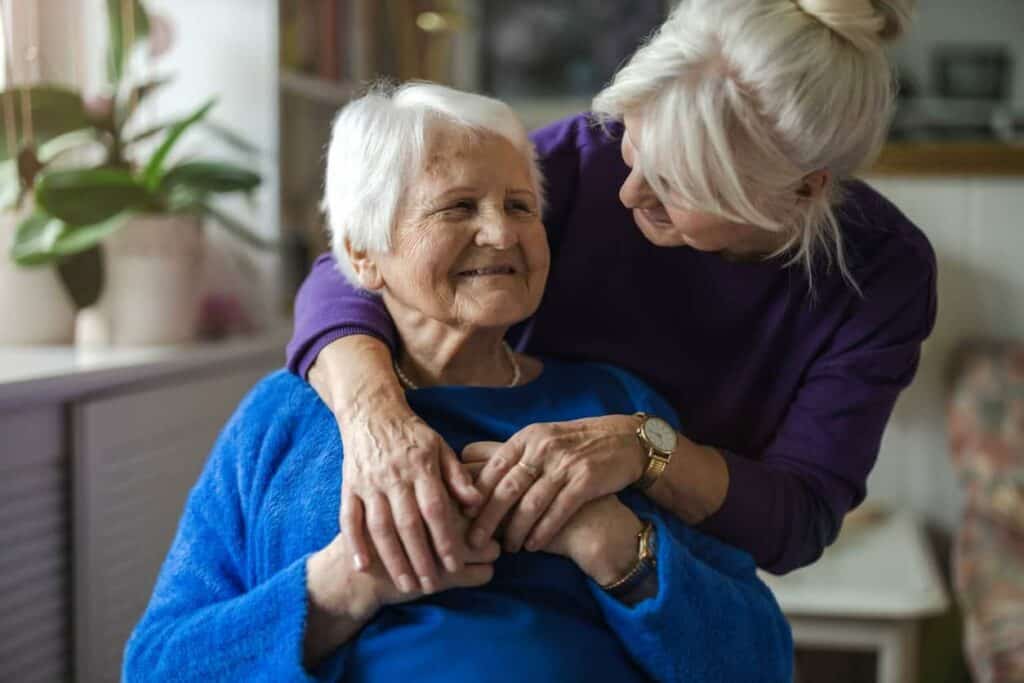
Understanding dementia stages can help you provide more effective care to a loved one. Dementia is irreversible, but existing treatments might slow the disease’s progression. However, each phase may indicate worsening symptoms and an even more significant memory loss. By learning how the disease progresses or its trajectory, you can strategize around delivering the best care for a loved one.
Amy’s Eden is committed to making dementia resources available for everyone. Read more if you want to know how this condition affects your senior loved one at each stage.
Dementia is a progressive brain disease that prevalently affects seniors. Its key symptom is memory loss, which worsens as the disease advances. If your loved one is diagnosed with this, their cognitive abilities will slowly decline and impact their way of living and quality of life.
It starts at an early stage when memory loss occasionally happens. As the disease moves to the late stage, your loved one won’t be able to recognize you or recall several events in their lives.
Dementia damages the brain cells, resulting in impaired thinking abilities. There’s no cure for dementia or Alzheimer’s yet, but treatment options are available to delay the disease’s progress and extend the lifespan of people living with it.
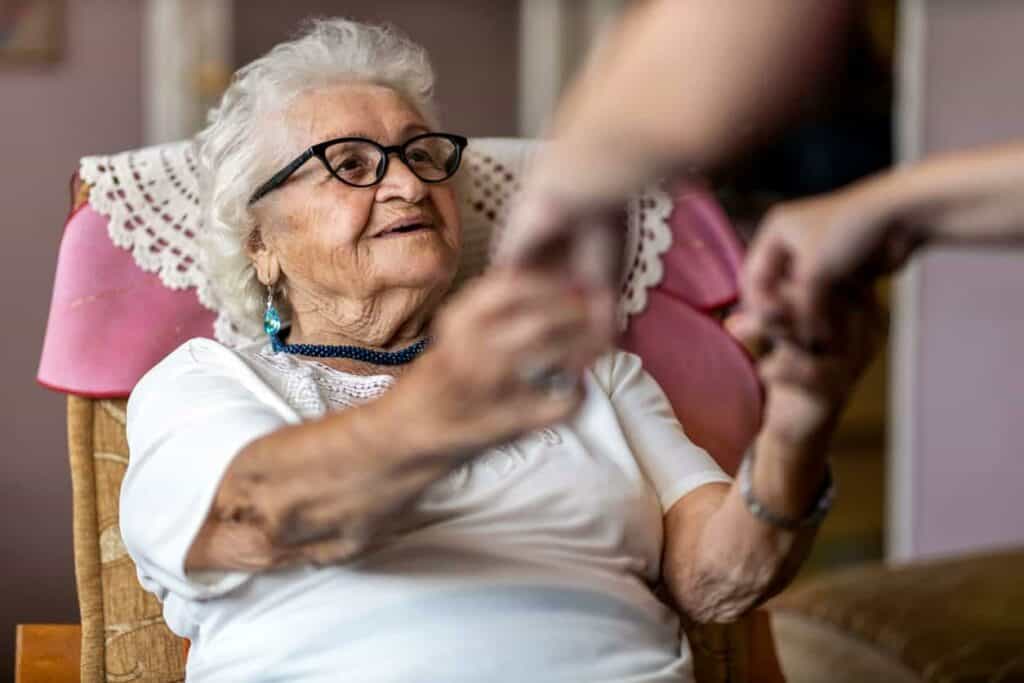
Researchers haven’t identified the single cause of dementia yet. However, they’ve identified several factors contributing to its development. As there are different types of dementia, the causes also vary. Here are some shared risk factors:
Dementia is a degenerative disease that moves through stages and worsens each stage. It affects various brain areas. Alzheimer’s disease, the most prevalent dementia type, is marked by the buildup of toxic proteins that form plaques and tangles in the brain. What this does is impair memory, with mild symptoms starting from occasional forgetfulness.
As the disease progresses, memory loss becomes frequent until the brain damage spreads to other regions. At the severe stage, it affects not only memory but also language, execution, emotion, vision, mobility, and behavior functions. At this point, your loved one entirely depends on others or their caregiver for daily functioning.
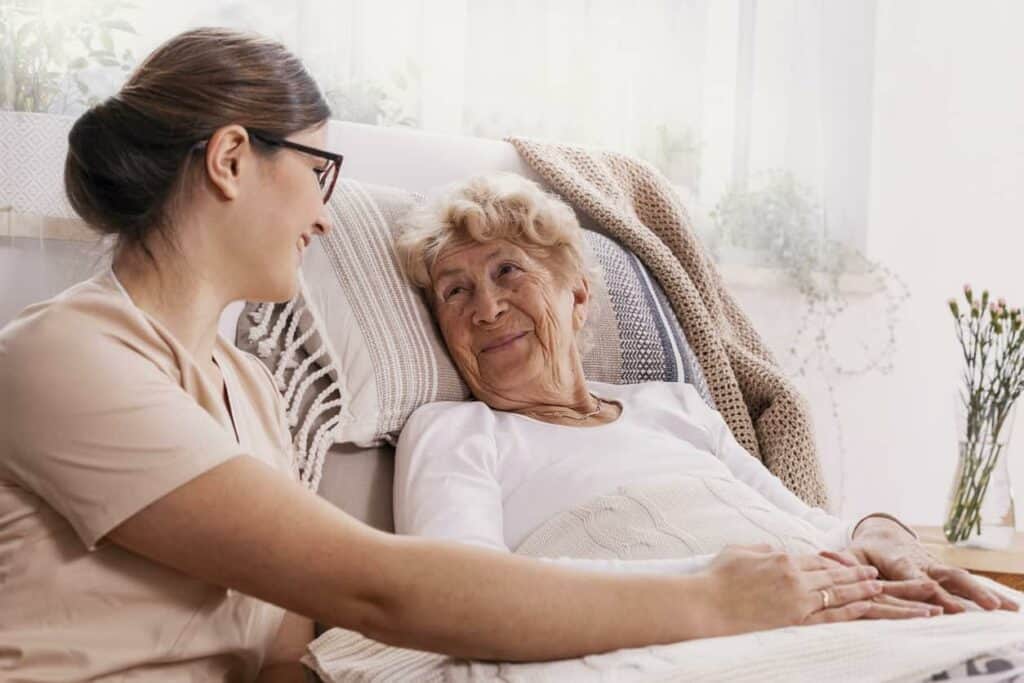
This cognitive impairment moves through a course — early, middle, and late. Care providers use these stages to categorize symptoms and the extent of brain damage. Each patient experiences dementia in a unique way and may exhibit varying signs of deterioration. For instance, your loved one may be at the earliest stage but is still fully capable compared to another person at the same phase.
One of the reasons is the contributing factors. If the other patient is a smoker, their symptoms may be more apparent than those with a healthier lifestyle. Another notable thing about dementia stages is the time each patient spends in each phase or how slowly or quickly the disease advances. People with an optimistic lifestyle and good at managing co-occurring conditions can delay the progression and live longer.
The main differentiator between the three periods of cognitive decline is the severity level of the symptoms.
The first stage of dementia is marked by mild symptoms that have little to no impact on your loved one’s daily routine. You may notice some of these signs.
The next phase is when symptoms are heightened and happen more frequently. They may experience difficulties in the following areas.
The final phase is when symptoms reach their highest severity, and your loved one completely depends on others for day-to-day tasks. They may experience:
Early diagnosis is crucial in either reversing or managing cognitive decline. As some conditions can produce curable dementia-like symptoms, like thyroid and heart disease, spotting the signs at the onset can potentially reverse any brain damage.
For irreversible dementia, early diagnosis ensures your loved one receives the best treatment methods with a higher success of slowing down the brain decline. In addition, they can make the necessary lifestyle changes to take extra care of their health.
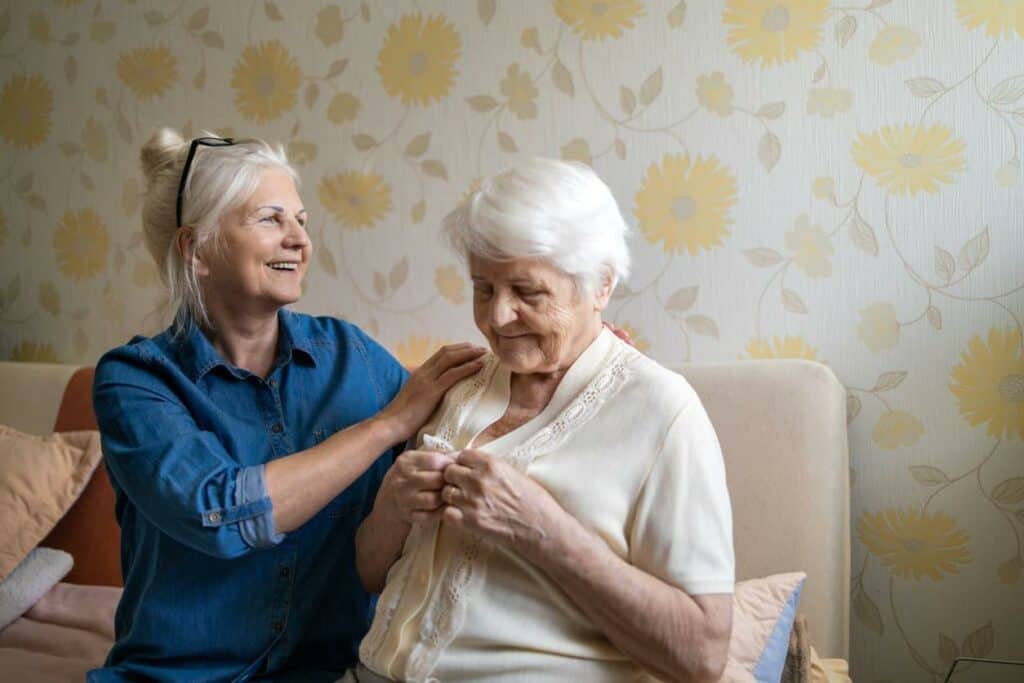
This stage is called the pre-dementia period because the defining symptoms don’t manifest or appear only occasionally. The early signs of dementia feature mild and occasional memory impairment. Your loved one may forget where they place their car keys or have trouble finding the word during conversations.
Mild memory loss at this level is often assumed to be associated with aging, so it’s quite challenging for doctors to diagnose dementia at this stage. Your loved one can still function without supervision, care for their needs, and be self-sufficient.
To address early memory impairment, everyone in the family must work with the care provider to get involved with the treatment.
Lifestyle changes can help delay the advancement of the disease. Here are some tips.
1. Encourage your loved one to get involved in physical activities.
2. Eat fresh fruits and vegetables and avoid high-fat foods
3. Teach them how to manage stress and avoid stressful situations.
4. Promote quality sleep by having a good pre-bedtime hobby.
5. Work with your care provider and learn how to manage your loved one’s needs.
The first source of support for the family is their care provider. By working with their primary doctor, other family members can get patient education and tips on managing the disease. On top of this, several local and national organizations also assist people with dementia and their families through learning materials, referrals to assisted homes or memory care communities, and emotional support.
Call the 24/7 helpline by dialing 1-800-272-3900. You will be connected with a knowledgeable staff who can answer dementia-related questions.
Your local Area Agency on Aging (AAA) can also provide assistance and some home care services to help your loved one. Call 1-800-677-1116 or find a local office.
Groups such as ALZConnected can help you connect with other family caregivers and get practical tips from them about dementia care.
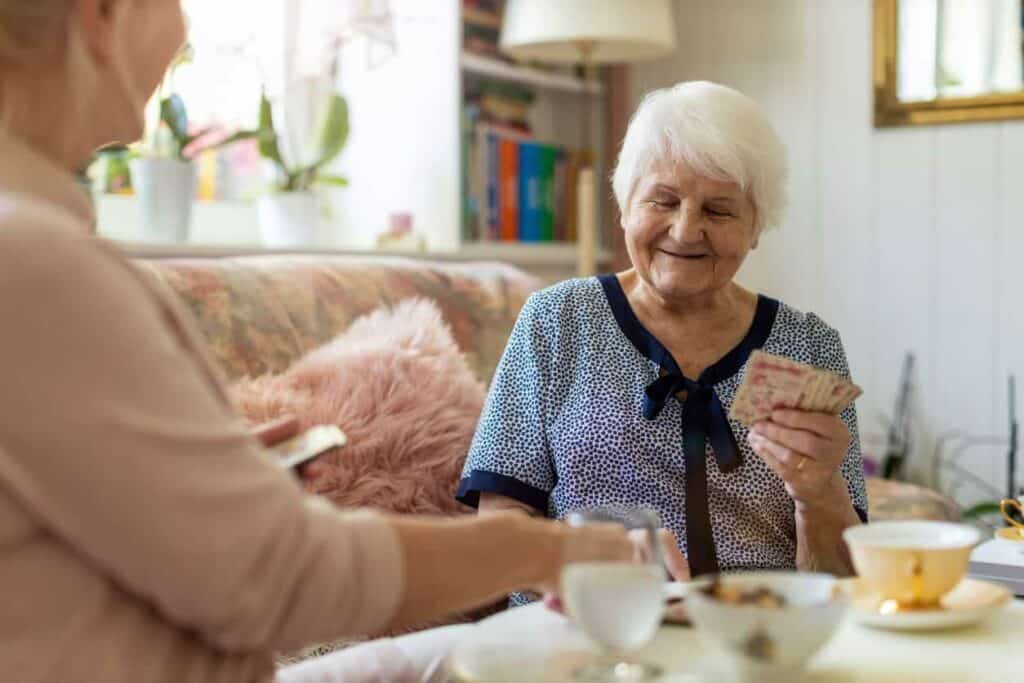
At this stage, signs of dementia become noticeable to other people. However, your loved one may deny they have it. It’s also at this period when doctors diagnose dementia because the person may not recall current events and exhibit frequent memory loss. They may develop poor concentration and find it challenging to manage their finances.
Since symptoms are moderate, several areas of health will show deterioration. Your loved one may experience the following:
At this point, communication may gradually decline. The main challenge for families is the increased level of care, making the home an unsafe space for your loved one. Many transition to an assisted living or memory care living facility here as adult children find it difficult to provide the care their loved one needs.
You must talk with your loved one about establishing advance directives, such as a living will, that includes their wishes about artificial support, and assign a conservator to manage their finances after their end of life. Work with an expert to set up legal concerns to avoid future problems.
As most diagnosed patients move to a community, the on-site caregivers become in charge of care provision. Facilities employ around-the-clock care staff to deliver personalized care to residents, from day-to-day tasks to medication management and personal care. Caregivers may assist in the following areas:

At this stage, severe memory decline happens. Your loved one may forget their spouse’s name or become largely unaware of experiences in their life, the seasons, time, or year. They may have trouble counting and become incontinent. Behavior-wise, they experience delusions and hallucinations and become violent. Communication skills are at a dip, and their ability to walk loses as the brain loses the ability to command the body what to do.
Physical and cognitive abilities are lost, and your loved one becomes wholly dependent on the caregivers for daily tasks, such as bathing, eating, and toileting.
This stage is the most challenging for both the patient and their family. As your loved one loses most of their abilities, all you can do is provide emotional and social support by still engaging in conversations, even if they find it hard to communicate.
Learning body language and cues can help you understand what your loved one is trying to convey. Above all, this stage is the last phase of dementia, and the goal is to make the experience as painless as possible.
The last stage of dementia can last about one to two years. Palliative care and end-of-life services focus on providing relief and comfort from suffering. The family can benefit from such services, especially counseling, to teach them to accept and overcome grief. Doctors may prescribe medications to relieve pain.
There’s nothing much to do at this stage but to wait while also supporting your loved one.

Dementia is a battle the entire family faces. By giving adequate care and support to your senior mom or dad, they can preserve their independence for years and live a meaningful life.
As each individual experiences dementia symptoms differently, a universal or one-size-fits-all care approach won’t cut it. Personalized care is key for your loved one to maintain their autonomy, dignity, and motivation to shift their lifestyle for the better.
Tailored care also allows them to have the freedom to do the things they’re capable of, and this increases their optimism in life. For example, at the early stage, your loved ones may still be capable of driving. If you insist on a driver, they may accept it, but it will adversely impact their health and think you’re controlling them. By providing discreet care, you allow them to be self-sufficient and make life decisions for themselves.
Abundant senior living services are available for people diagnosed with a cognitive impairment. Throughout the country, you’ll find assisted and memory care facilities catering to the needs of people with dementia. Amy’s Eden is one of them.
Our homes are located around Reno and Carson City, Nevada, and offer a comprehensive range of services from personal to dementia care to help your loved one with memory decline live meaningfully.
We understand the unique challenges brought by dementia to the patient and their family. That’s why we’re committed to providing a nurturing and safe environment, expert care, and support.
An active lifestyle and cognitive stimulation can help delay dementia symptoms, improve mood, and promote mental well-being. Your senior relative can benefit from the social activities that Amy’s Eden homes have. They can choose the activities they want to engage in, such as card games or a museum visit, and our caregivers help organize these events.
Memory care programs and activities are a part of our residents’ daily routine. If your senior relative moves to one of the homes, you won’t have to worry about them leading a sedentary lifestyle that further deteriorates their health.
Our approach to memory care programs is to learn what activities or hobbies your loved one wants, and we do them — not force them to join events they don’t feel like doing. That’s why each day at Amy’s Eden home is filled with fun since our events are centered on your loved one’s interests.
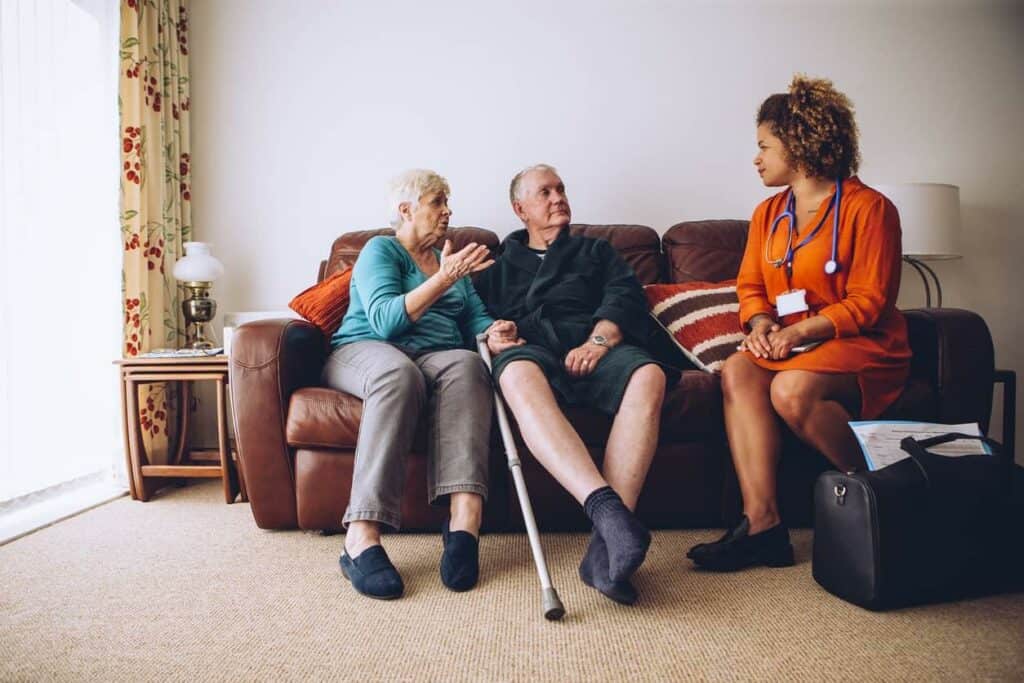
Both the patient and their family can benefit from any form of support they can access to improve the family situation. Amy’s Eden acknowledges the impact of dementia on the family, so we’re here to provide education, guidance, and emotional support throughout the dementia stages.
Caregivers are at more risk of mental health issues because of juggling responsibilities and building up stress from everyday tasks. Providing care takes a toll on health, so your welfare should be a priority, too. We have experienced caregivers you can hire to reduce your care load. We also offer educational materials with tips and recommendations to help you effectively navigate the role of a caregiver.
Patient education is a crucial aspect of dementia care. For family caregivers, learning about dementia, how it’s managed, and how to deal with unexpected changes in behavior and overall ability can help you become an effective caregiver.
Amy’s Eden supports families by empowering caregivers and expanding their knowledge about the disease. We can help you learn more about proper dementia care. We also work with your primary physician to provide the best quality care for your loved one.
We offer respite service to help primary caregivers take a break from their role and check in on their own well-being. Providing care for a loved one with dementia is highly challenging and often leads to burnout, depression, excessive stress, and anxiety. If you need assistance, don’t hesitate to ask for help. We have dependable caregivers to oversee your loved one’s care needs while you recuperate.

Holistic health is critical to leading a happier lifestyle despite being diagnosed with dementia. It encompasses the mental, emotional, spiritual, and physical needs of your loved one.
What you eat affects your brain. A healthy diet can help prevent or delay symptoms of cognitive impairment. The Mediterranean and MIND (Mediterranean–DASH Intervention for Neurodegenerative Delay) diet incorporating lots of vegetables, fruits, and wholesome choices can lower the risk of brain disease, such as high blood pressure.
A balanced diet is best combined with an active lifestyle. The CDC recommends at least 150 minutes of moderate-level exercise for optimal health.
People with dementia will likely isolate themselves and experience mental health issues, worsening their symptoms. One way to avoid this is by providing companionship care to promote socialization.
Striking small conversations whenever you can or visiting them weekly if they live in a facility helps your loved one maintain their social life. Another option is to hire a caregiver to accompany your loved one to grocery shopping, gardening, or doing any hobbies they want.
You need to know how the disease progresses in the coming months. Meeting with your doctor regularly is essential to stay informed of what changes to expect in the future. It helps you prepare as a caregiver and learn caregiving techniques in advance. If faced with worsening symptoms, you’re equipped to manage them.
Medication management is as vital as regular check-ups because it helps manage the condition. Make a note to remind your loved one when to take their medications. Hire a caregiver if you need help with this.
The news of dementia can be devastating as there’s no cure for it yet. But your loved one can live joyfully and long if they receive proper and adequate care. Lifestyle modifications also play a role, as good diet and nutrition can delay the progress of dementia.
Caring for a loved one, on top of your other responsibilities, can lead to a spiral of mental health issues. Seek professional assistance and respite care before you fall mentally ill. You don’t have to take on all of the brunt of caregiving. Dementia care support is available to help you.
Amy’s Eden offers various assisted living services to support people with dementia and their families. If you need an extra hand in providing personal care, supporting activities of daily living, and companionship care, we’re always here to help.
Get care >
Brand Kit Brand Kit Brand Colors #CC2C7C #DC4C5C #020202 #989898 #FFFFFF Logos & Icons Small Logo Download Copy Link Brand Icon Download Copy Link

Are you worried your loved one isn’t sleeping well? Do you notice them tossing and turning, napping in the afternoon, or complaining about fatigue most

There’s something deeply comforting about aging in a place that feels like home—the familiar walls, the cherished memories, the sense of belonging. For many older
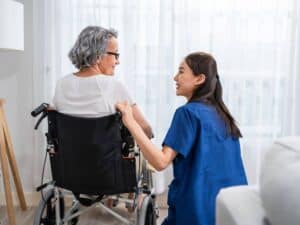
Caring for an elderly loved one is a journey filled with love, challenges, and a lot of questions. One of the biggest questions you might

